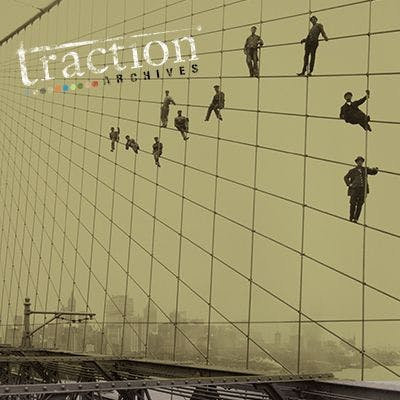Is it Time for Real Time Marketing Culture?

By Adam Kleinberg
I'm writing this post on an airplane, watching President Obama's inauguration in real-time as I soar across the United States. I'm heading to NYC because I'll be speaking on a panel titled From Real-Time Bidding to a Real-Time Marketing Culture at the OMMA RTB conference this Thursday, January 24.
I'm writing this post on an airplane, watching President Obama's inauguration in real-time as I soar across the United States.
I'm heading to NYC because I'll be speaking on a panel titled From Real-Time Bidding to a Real-Time Marketing Culture at the OMMA RTB Conference this Thursday, January 24.
(...at 2:30pm at the Grand Hyatt if you'd like to come...)
Kind of ironic that I'm marketing in real-time right now.
Here's the description of the panel:
RTB is just the beginning. Automated systems are not a trend so much as a necessity as digital platforms underpin all marketing. From addressable TV advertising to the checkout coupon, OOH to call centers and geo-located mobile offers, the demands of personalized, contextually relevant messaging across so many channels defies manual control. Programmatic buying, real-time reporting, bidding for placements, buying audience rather than media – are techniques that likely will infiltrate all aspects of the future agency.
But is this more than mere automation and instead a real change in culture?
Does it promise a transformation of agencies into tech companies and platforms?
Does it require a re-thinking about the role and value agencies and their relationship to clients?
Or does it promise a new focus on the most creative functions in marketing that cannot be automated... yet?
Some interesting questions. Here are some random thoughts:
Mere automation or Change in Culture?
One of the core challenges with this new "programmatic" buying technology is that it is a simply that—a change. In a recent conversation with the head of sales from one of the companies in this space, he told me that small and mid-sized agencies were embracing these technologies faster because they saw an opportunity to gain competitive advantage while larger ones were more concerned with risk aversion.
The fact is that buying a different way means different processes, different team structures, different skill sets, and, yes, sometimes different people.
If that adds up to a different culture, so be it.
Are Agencies Becoming Tech Companies or Platforms?
Agencies are expert at leveraging technology. We often build technology for our clients. We might build it for ourselves if it'll create some sort of efficiency (for instance, Traction has invented a tool for automating email production). We may even have lines of business that license technology we create to clients.
But to say we're becoming technology platforms seems like a misnomer. It's a different business model. Not a bad one. Not an unattractive one. But not the same. One of the core values I think we deliver as an agency is objectivity. If we started pushing technology, we'd be in danger of losing objectivity.
The Role and Value of Agencies to Clients
The rapid growth of digital advertising technology has created questions about the value of agencies. This makes sense. Many agencies have shifted the focus of their services from consultant, idea-generator and brand guide to purveyors of commoditized services. Customer acquisition is becoming an automated business process. Even some aspects of creative development have become commoditized.
Despite this shift, agencies still provide value in a real-time world. Objectivity and expertise in strategic thinking, ideation, integrated planning, content production and technology development are simply not bundled in the majority of organizations.
Some of these services may exist within some brands. Some of our clients have internal expertise in services that align with their core business that used "belong" to agencies. Shutterfly brought online direct response in-house because driving e-commerce revenue is the core of their business.
Shutterfly engaged us for a year to help them develop that expertise in-house. That was the problem they needed solving so we helped them solve it. Brands consistently have challenges that need solving that they can't solve on their own.
Real-time marketing presents new challenges. Brands have access to the same data—and if they all make the same decisions based on the same data, they risk becoming commoditized themselves.
The role of agencies is rolling back to where it was years ago. The value is shifting, but not diminishing.
A new focus on creativity?
Real-Time marketing requires Real-Time creativity. That is indisputable.
Today, ideas need to be generated and creative produced at the speed of conversation. What is relevant to people right now is different than what was relevant 5 minutes ago.
Beyonce just sang the national anthem at Obama's inauguration. Is that an opportunity for your brand? You may not think so, but it is. People are out there googling "Beyonce Star Spangled Banner" right this moment. Now, it may not be a good opportunity. It may not be the right opportunity, but it is an opportunity—and hundreds more opportunities will be coming up in the coming week.
Understanding what opportunities are the right opportunities and taking advantage of them creatively is becoming more of a focus. We do that for our clients today.
Which brings us back to culture. Campaign creativity requires a collaborative process. That process requires time, approvals, consensus building, refinements.
Content creativity cannot wait. To be opportunistic, to be real-time marketers, we need to rethink the creative process. Content needs to be snackable. It needs to be relevant. And it needs to be timely.
Which brings us back to culture. Real-Time marketing will require a cultural shift—not just at agencies—but at the clients we serve.

I had an article published on iMedia today about Agency Partnerships. Partnerships are vital in today's day and age—and we've had a lot of them. Here I provide 5 tips to be successful at them.

Congratulations to Traction Art Director Kellie Okai for being named to the Forbes 30 under 30 in Marketing and Advertising.

With the Mayan Calendar predicting an eminent galactic alignment signifying the possible end of days, Traction has created Apocalymas: a 12 day counting down to the end of the world... or maybe not.
